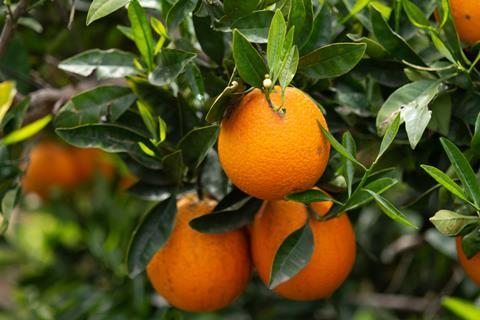The country says errors made this year cast serious doubt on reliability of phytosanitary testing procedures in the EU
The South African citrus industry has raised serious doubts about the accuracy and reliability of testing procedures followed by EU member state laboratories.

In a letter to the EU Standing Committee on Plants, Animals, Food and Feed, Plant Health Section, the South African Citrus Growers’ Association (CGA) said investigations had revealed a number of false positive test results and erroneous reporting this season.
The matter is at the heart of the long dispute between the EU and South Africa, which is threatening the future of South African citrus exports to the EU.
Examples of erroneous reporting included reported cases where the pest did not occur in South Africa; the fruit was produced in a pest free area; the fruit was produced in a place of production considered to be pest free; or there was clear evidence that the pest was not alive.
The CGA said a comprehensive analysis of all the interceptions of South African citrus during the 2023 season was performed by Citrus Research International (CRI).
“In line with South Africa’s status as a signatory of the International Plant Protection Convention (IPCC), and as longstanding exporters of high-quality citrus [over 100 years], the CGA takes its phytosanitary responsibilities very seriously, implementing a rigorous risk management system that ensures in excess of 99.9 per cent of all fruit entering the EU from South Africa is pest free,” said Deon Joubert, the CGA’s special envoy, market access, and the CGA’s EU Representative, Rocco Renaldi.
“CGA members, which include all South African producers who export to the EU, continue to implement these world-class control measures despite preponderant scientific evidence that citrus fruit without leaves is not a pathway for the spread of CBS,” they continued. “This serious commitment is underscored by independently verified mitigation measures that cost R3.7bn per annum.”
The CGA pointed out that as IPPC signatories, EU Member States also had an important responsibility – namely, to ensure that all tests arising from inspections on all fruit entering their markets were conducted accurately and reliably.
“The erroneous cases, evident from technical analyses on several notice of non-compliances (NONCs) this past season, unfortunately cast doubt over the entire system.
“In this regard the CGA is aware of several other erroneous and overturned EU interceptions of citrus from, among others, the United States in the recent past,” the association stated.
”Although the South African government has brought the misidentifications to the attention of the European Commission, there has been no official action from the EU on the matter to date. Our technical and evidence-based concerns have been dismissed, rather than answered with an evidence-based response.”
It called on the members of the EU’s Standing Committee on Plants, Animals, Food and Feed (SCOPAFF) to ensure due process was followed.
“This calls for a full analysis of these contested inspections and reporting this past season, as well as an audit of EU Member States’ laboratories involved to ensure reliable and accurate identification of the pests in question, and to ascertain their viability.”
The CGA said it did so in the spirit of mutual continuous improvement that was reflected in its own routine diligent scientific analysis of each EU NONC that South Africa received, followed by specific corrective action mandated by the CGA.
“This review will not only enable continuous improvement in phytosanitary management to continue; it will also secure confidence in the EU Traces report.”
The CGA said it was clearly in the common interest of both trading partners to ensure that there was a ’safe space’ for challenges of this kind to be discussed constructively.
“We trust that a constructive and evidence-based exchange of views between South Africa and the EU can bring this matter to a mutually satisfactory resolution, in the spirit of the IPPC.”



